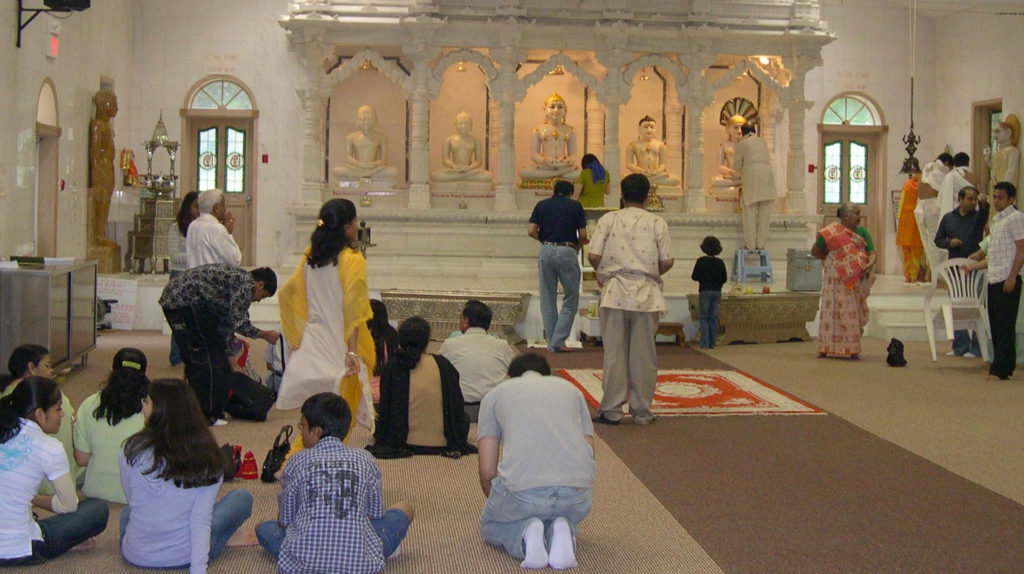Four Aspects of the American Jainism Lifeway:
E03 Jainism
Ancient Indian religion emphasizes non-violence, truth, and asceticism, with a focus on liberation from the cycle of rebirth.
Jainism in the United States is a small but vibrant religious community that adheres to the ancient Indian tradition of Jainism. Jainism is characterized by its emphasis on non-violence (ahimsa), truth (satya), and asceticism as central virtues, as well as a profound respect for all living beings. Although Jainism originated in India over two millennia ago, it has found a dedicated and growing following among both immigrant and non-immigrant populations in the United States..

American Jainism
The history of Jainism in the United States can be traced back to the early 20th century when the first Jain immigrants from India arrived on American soil. These early pioneers faced significant challenges in preserving their religious and cultural traditions while adapting to a new country. Over the decades, Jain communities have grown and established a presence in various parts of the United States, particularly in states with significant Indian populations.
Temples and Cultural Centers
Jain temples and cultural centers serve as focal points for religious worship, meditation, and community gatherings. They provide a sense of belonging for Jain practitioners and offer opportunities for religious rituals and festivals. Key events on the Jain calendar include Paryushana, an annual period of reflection and fasting, and Mahavir Jayanti, celebrating the birth of Lord Mahavira, the 24th Tirthankara and a central figure in Jainism.
Dietary Practices and Asceticism
Jain dietary practices are well known for their strict adherence to non-violence. Many Jains in the United States follow a vegetarian or vegan diet, avoiding harm to animals in their food choices. Additionally, Jain monks and nuns, known as sadhus and sadhvis, practice extreme asceticism, often renouncing worldly possessions and leading lives dedicated to spiritual pursuits.
Values and Principles
The values of Jainism, including compassion, non-violence, and ethical living, resonate with a broader audience in the United States interested in mindfulness, meditation, and ethical consumption. Jain principles align closely with contemporary concerns about environmental sustainability and animal welfare.
Summary
In summary, Jainism in the United States represents a dedicated and principled religious community that upholds ancient Indian teachings of non-violence and ethical living. Despite being a relatively small religious group, Jainism's influence extends beyond its own practitioners, contributing to broader discussions on non-violence, compassion, and ethical lifestyles in contemporary American society.
.

| TOP TEN BASIC TRADE AREAS | |
| 1 | New York, NY |
| 2 | Philadelphia, PA-Wilmington, DE-Trenton, NJ |
| 3 | Allentown-Bethlehem-Easton, PA |
| 4 | Washington, DC |
| 5 | Seattle-Tacoma, WA |
| 6 | Los Angeles, CA |
| 7 | Orlando, FL |
| 8 | Boston, MA |
| 9 | Columbus, OH |
| 10 | Rochester, NY |
